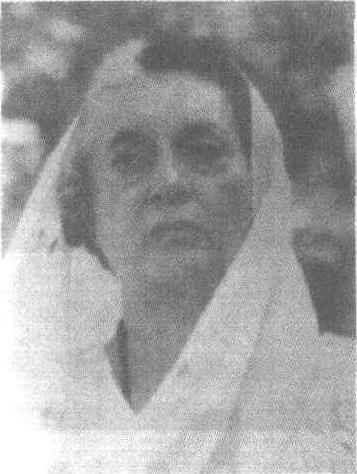英迪拉·甘地1917—1984
印度政治家。贾瓦哈拉尔·尼赫鲁的女儿。生于安拉阿巴德。自幼处于一个多变的政治漩涡之中,13岁建立一个儿童组织,帮助国大党和自由运动传递消息。后被送到英国上学,先后在巴德明顿、牛津萨默维尔学院受教育。1938年加入国大党,1942年与记者费罗兹·甘地结婚,1953—1957年任中央社会福利委员会主席。1955年任国大党执行委员会委员。1956年起任中央议会委员会委员。1956—1960年任全印青年大会主席,1964年,入阁担任新闻和广播部长。1966年接任总理。尽管不断受到党内右翼的挑战,但她“控制议会”,实行激进政策。1967年竞选未能获胜。1971年大选中以压倒多数取胜。在职期间经济方面困难重重,特别是对巴基斯坦就孟加拉问题发动战争后更甚。1972年大选中又获胜。1974年爆发大规模游行示威,1975年6月安拉阿巴德高等法院作出不利于她的裁决。她宣布紧急状态,把成千上万的政治对手投入监狱,推行严厉的出版审查和一系列限制个人自由的法律,1977年提前举行大选,惨败,并受公众的抨击、谴责和指控。她失去议会席位,辞去总理职务。1978年12月被监禁一周,1978初,分裂出英迪拉派,她又争取追随者,1980年大选获胜,1月14日再行总理宣誓就职典礼。甘地夫人个人权力旺盛,坚韧不拔,政治上不屈不挠,在世界事务中坚持独立自由,1984年10月31日被刺身亡。

英迪拉·甘地
英迪拉·甘地 (1917—1984),出生在印度阿拉哈巴德市,祖父潘迪特·莫蒂拉尔·尼赫鲁是印度的显贵,后投身到反英斗争中,担任了印度国大党的主席。父亲为赫赫有名的潘迪特·贾瓦哈拉尔·尼赫鲁,印度的第一任总理,与周恩来共同倡导 “和平共处五项原则” 和以发起不结盟运动而闻名。她的小名叫 “英杜”,从小她便受到祖父和父母的严格管教。
尽管她不能固定、安静地读书,而是象走马灯似的不断转学、停学。但她受过良好的学校教育,获得了很多知识,1939年2月,她考取了英国牛津大学的萨默维尔学院,在那里学习行政、社会事业管理、历史和人类学。可是因为战争她未毕业便回国了。1942年她与袄教教徒费罗兹结了婚,这门婚事在印度掀起了轩然大波,遭到许多公众舆论的批评与反对。后来尼赫鲁及圣雄甘地站出来保护他们,这场风波才得以平息。
后来因参加一次集会,英迪拉被捕,这是她生平第一次坐监狱,但这8个月监禁却锻炼了她的人格。由于出狱后无收入,她与丈夫的生活有些拮据,但仍然很幸福和快乐。1947年8月15日印巴分治,印度正式宣告独立,尼赫鲁担任总理,她凭借自己的聪明才智,很快成为父亲的最亲近的秘书和参谋,为尼赫鲁出谋划策,同时也丰富了她的政治经验。1959年2月在尼赫鲁有意安排下,英迪拉·甘地当选为国大党主席,这成为她政治生涯中最重要的事,也是她担任印度最高领导人的重要阶梯。1960年9月丈夫的逝世,让她受到了打击,而1964年5月27日父亲的逝世,更给她一个致命的打击,在亲友们劝阻下,开始支持夏斯特里任印度第二任总理,并在他内阁中担任新闻广播部部长。1966年1月,夏斯特里因病去世,她直抵总理宝座,于当年1月24日就任印度第三任总理。并于1967年和1971年两次大选中,连任总理。但由于经济的恶化,政治上贪污腐败现象严重,引起人民的强烈不满,终于在1977年3月大选中遭到惨败。
下台后的英迪拉利用自己影响,争取民心,等待时机,以图东山再起,1980年举行的第七届大选中,国大党 (英·甘地) 取得了胜利,英迪拉终于东山再起,重登总理宝座。就职后,她在政治上对反对党实行分化瓦解,加强对全国的控制,巩固了国大党的统治; 在经济上实行调整和有限度的开放政策,很快经济有了好转; 外交上在大国之间搞平衡,并高举不结盟运动旗帜,提高了印度国际地位,这一切都使英迪拉执政地位加以巩固,她又成为了全国崇拜的领袖。
但她也遇到了难题,她培养的接班人桑贾伊因飞机失事身亡,在再寻扶植对象的同时,桑贾伊遗孀玛尼卡不甘心将要到手的权力丢掉,而公开与婆婆对抗,一时间婆媳之争成为国内外的话柄。再则,印度固有的教派、民族矛盾十分尖锐,“金庙事件” 严重伤害了锡克人的宗教感情,引起锡克人的仇恨和报复行动。1984年10月30日,英迪拉从她官邸步行到办公室会见记者时,她的两名锡克族贴身警卫突然举枪向她射击,当日下午因抢救无效而死亡,终年67岁。11月3日,印度举行了英迪拉·甘地的葬礼,葬礼完全按印度教的传统仪式进行,英迪拉被火葬,火葬地方成为墓地,并建筑永久性纪念物。她去世后,印度每年都以各种方式纪念这位杰出的女政治家。